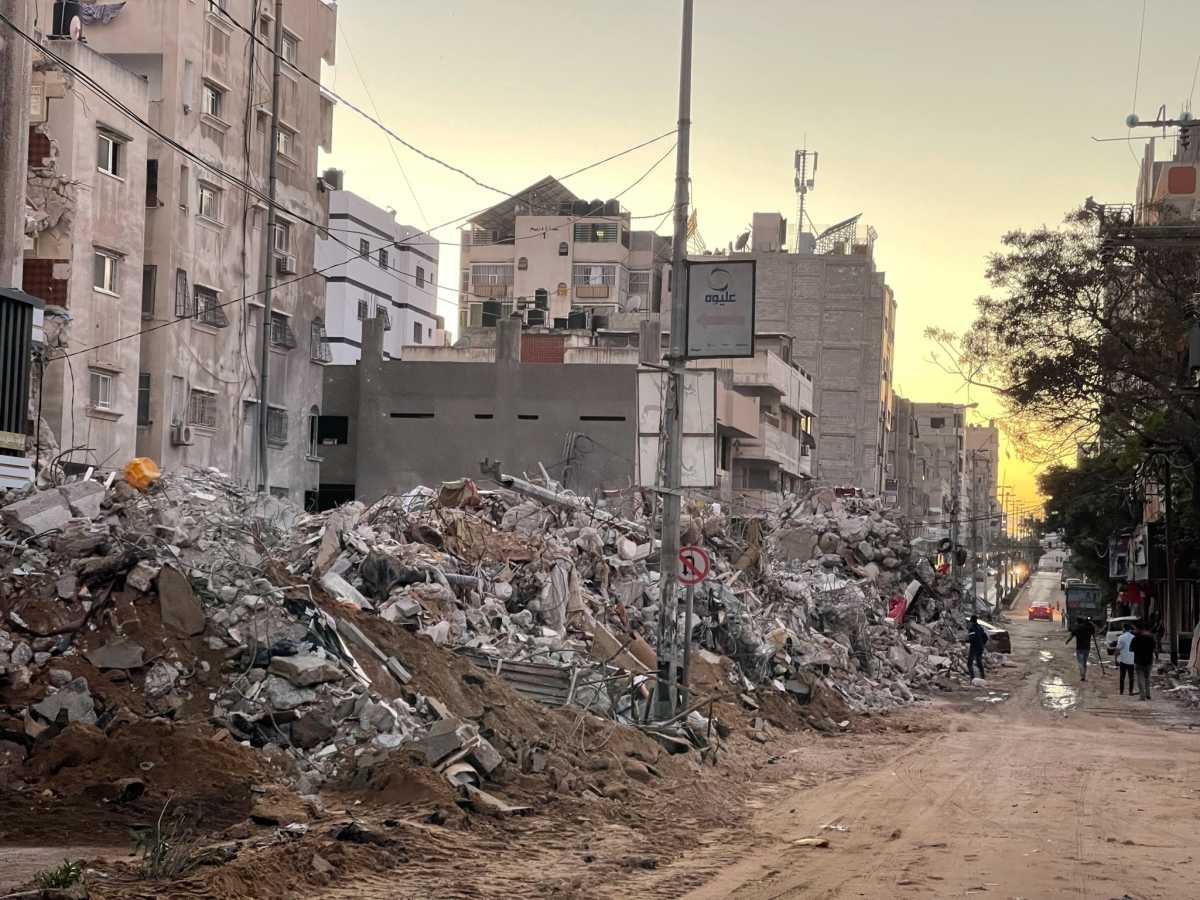The reconstruction plan will be implemented in three phases: residential units, infrastructure and high-rise properties.
The first phase of the reconstruction process of Gaza is set to start soon, following months of obstacles imposed by Israeli authorities, according to Al Jazeera.
The reconstruction project is being run by Gaza’s Ministry of Public Works and Housing, the Qatar Committee for Reconstruction of Gaza and a number of international donors.
“Qatar pledged $500 million to rebuild the residential units destroyed in the recent Israeli offensive, where Egypt pledged $500 million that will go to the infrastructure and destroyed streets,” Naji Sarhan, under-secretary of the Ministry of Public Works, told Al Jazeera.
In May, Israeli forces carried out a series of crackdowns and attacks on Palestinians at the Al Aqsa mosque and the Damascus Gate in Occupied Jerusalem.
The violent attacks mainly targeted civilian homes and infrastructure, killing more than 260 Palestinians, including 66 children.
Around 2,000 homes were destroyed and some 22,000 properties were partially damaged, leaving tens of thousand of Palestinians displaced.
“At least four high-rise buildings were levelled, and 74 public structures were targeted,” according to Al Jazeera, noting the offensive resulted in losses estimated at $497 million.
“The 14-year Israeli-Egyptian blockade on the strip imposed many obstacles on the reconstruction process. Israel bans building materials through its border crossings, resulting in exacerbating living circumstances for Palestinians in Gaza,” Sarhan told the Qatar-based news outlet.
Read also: UN begins distribution of Qatar cash aid to Gaza
The reconstruction process comes in three phases. The Qatari committee will contribute to the first phase, which includes rebuilding around 1,000 destroyed units, including 800 partially damaged homes.
According to Sarhan, Egypt will take the lead in the reconstruction project within days as arrangements for the transfer of construction equipment into the besieged Gaza Strip are being carried out through the Rafah border crossing.
Kuwait had earlier pledged to reconstruct towers destroyed by Israel’s deadly May offensive, but the proposal has yet to be translated into an official agreement, he said.
“We hope more donors join the reconstruction process within the upcoming three months, including the Gulf Cooperation Council (GCC), European Union, and to contribute to supporting the industrial and agricultural sectors in Gaza,” said Sarhan.
Earlier this month, Doha’s envoy to Gaza, Mohammed Al-Emadi confirmed that Qatari aid to the besieged Strip officially resumed after months of obstruction by occupying authorities.
The United Nations revealed that the funding amounted to $40 million, while Al Jazeera earlier reported a total of 320 shekels, approximately $100, is set to be distributed to each family.
Entry of aid into besieged Gaza
Gaza government spokesman, Salama Marouf, told Al Jazeera that the occupying state agreed to lift restrictions imposed on construction materials entry into the Gaza Strip.
For years, Israel has been violating the Gaza Reconstruction Mechanism (GRM), by which the occupying government is requested to allow the entry of large amounts of construction materials into the besieged enclave following the 2014 war.
GRM is a temporary agreement created by the United Nations and signed by the involved parties in September 2014. It was established to permit construction in Gaza following destruction that came as a result of the war.
“There are a lot of materials that are banned entry into Gaza as they are classified within the ‘dual use’ list from Israel. This list has included many necessary materials such as water pumps, elevators, iron etc,” Marouf said.
However, the Gaza reconstruction committee is still concerned about Israel obstructing the entry of goods despite the agreement.
“This is the major challenge with the continuous siege imposed in Gaza. Israel may ban entry of building materials through its crossing at any time,” said Marouf, adding “we hope the donor organisations and all partners to guarantee a stable entry of building materials as agreed.”
He stressed on the urgency of implementing the project as planned to avoid destabilisation in the region.
“If pressure continues on Gaza, there will be an imminent explosion, the consequences of which will be borne by the Israelis. The situation in the Gaza Strip cannot continue in this way.”
If all donors adhere to their agreements and things go as planned, the reconstruction will be completed by the end of 2022, Marouf noted.
According to Al Jazeera, the head of Gaza’s media office, Hosni Muhanna, said the municipality appreciates reconstruction efforts.
“Infrastructure in Gaza has been hugely affected by Israeli bombing during the last offensive,” Muhanna said.
“Targeting roads, streets, sewer lines, and rainwater drainage led to huge destruction,” he added.
As temperatures drop ahead of the winter season, Muhanna warned that weather now imposes a challenge to the living conditions of Palestinians in the besieged enclave.
“Winter now is a main challenge as it will lead to a rise in the water level in the lowlands, and there are many destroyed streets in densely populated areas and vital centres of the city. There are fears of landslides and infrastructure collapses if reconstruction is not expedited,” he said.
“Until this moment, we didn’t receive a confirmation when will infrastructure works start, but we are hopeful they start very soon.”







